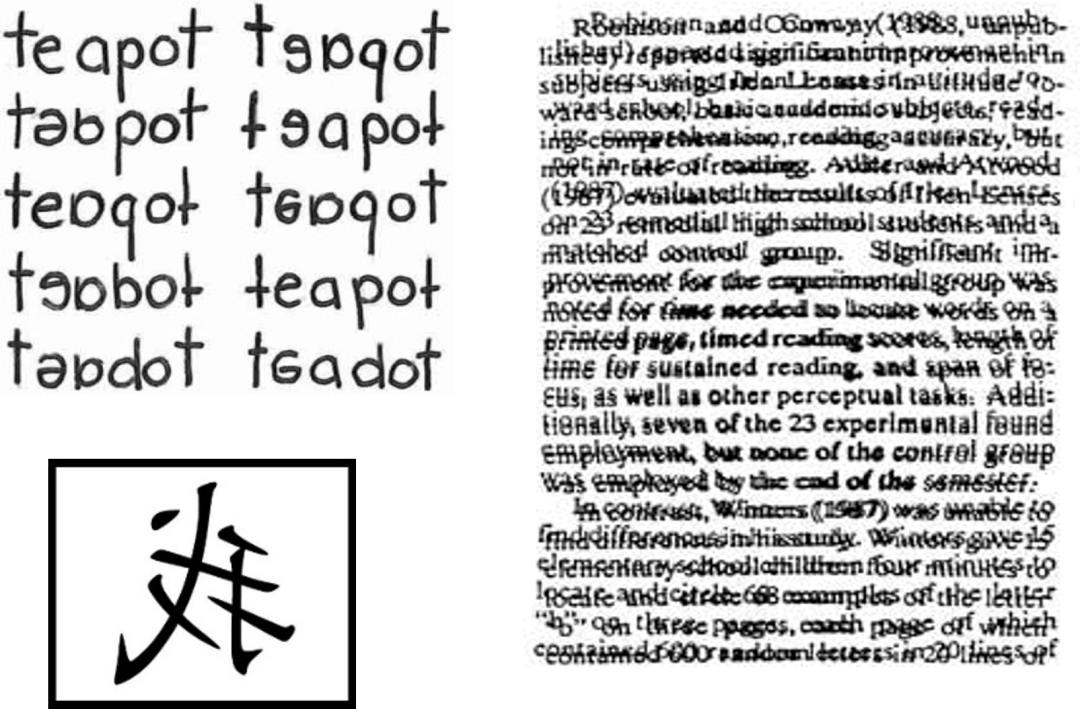True or False
Q: People with dyslexia have vision issues.
FALSE Some people with dyslexia will see blurry letters, words in reverse or inverted images, which may cause difficulty in their reading or spelling. However, this has nothing to do with their vision or eyesight! Dyslexia is a neurobiological condition that causes differences in parts of the brain that process language.

Q: Dyslexia is a sign of low IQ.
FALSE Dyslexia has no reflection on a person’s intelligence or ability! Having dyslexia does not mean that the child’s ability to learn is below average. Children who have dyslexia are just as smart as other kids.
Q: Dyslexia is genetic.
TRUE Dyslexia is linked to genes, which means that individuals can inherit this condition from a parent.
Q: Children who don’t speak English can’t have dyslexia.
FALSE Dyslexia exists all over the world and in all languages. Dyslexia plays out differently in different languages as issues individuals face depend on the structure and nature of the language.

So, what is Dyslexia?
DYS (difficulty) LEXIA (words). Dyslexia literally means a difficulty with words.
Dyslexia is a specific learning difficulty that makes it difficult for people to read, write and/or spell. It occurs when the brain does not properly recognize and process certain symbols. Children with dyslexia often have trouble reading accurately and fluently. They may also have trouble with reading comprehension, spelling, and writing.
How does dyslexia affect learning?
Dyslexia can have an impact on many aspects of learning. As reading is involved in most academic subjects, difficulties with reading can mean that a student needs more time to complete tasks that involve reading, or that they need more support and time to understand instructions.
What should you do?
First, know that help is available. Whether you are a parent or an educator, it is important to know that support is available, and make sure your child knows that too!

When students don’t have the proper support, difficulties with reading can lead them to feel discouraged, to have lower self-esteem and motivation to read, making them more likely to withdraw during school.
Knowing that skills can improve can help your child stay motivated! Finding the appropriate reading program will help children with dyslexia improve their skills and foster their confidence.
Know where to go for answers: ELG
ELG provides a range of reading assessments and interventions, both in English and Chinese, through our Services. Our reading and learning support specialists work with each child to understand what aspects of reading a student is struggling with to build intervention plans tailored to their needs. The provision of multi-sensory and highly structured interventions promote reading and spelling development for each child.
Become your child’s best advocate!
The more that parents understand their child’s learning difference, the better they are able to advocate for their child and support them.
This July, join our bilingual Dyslexia Specialist, Elis Poh, as she hosts a webinar on the topic of “Helping Parents Understand Dyslexia: How You Can Support Your Child”
References
Conley, M. (2012, April 5). Signs of Dyslexia Start Before Reading, Study Finds. Retrieved from https://abcnews.go.com/Health/visual-attention-lead-dyslexia-children/story?id=16078380
Morin, A. (2020, April 17). 7 Common Myths About Dyslexia. Retrieved from https://www.understood.org/en/learning-thinking-differences/child-learning-disabilities/dyslexia/common-myths-about-dyslexia-reading-issues
